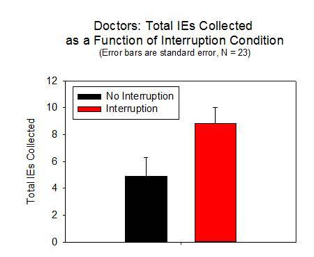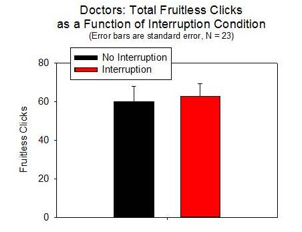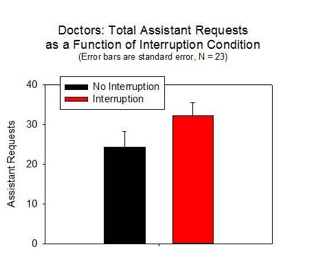Once again, interruption improved the rate of IE collection, as it had for the undergraduates engaged in a Detective Simulation. These physicians were more likely to return to a suspended case at an appropriate time (i.e., when the sought-after information was indeed available) if they were alerted to the fact that it was indeed an appropriate time.

Curiously, the overall rate of IE collection among physicians in the ER Simulation was substantially less than it was for undergraduates in the Detective Simulation. This may have been because of the fact that IE content was less central for the doctors than for the “detectives.” Alternatively, it is possible that the doctors were more inclined to assume that they would be alerted again by their assistant if something truly important arose.
LOCAL MEASURES OF PERFORMANCEThe tendency to seek awaited information at an inappropriate time did not differ as a function of interruption status. Once again, the physicians engaged in this simulation did not tend to take the initiative to seek out information on their own, unlike the non-specialist undergraduates.

Local disruption (to task B when it is interrupted to inform you that test A’s results are available) classically impairs performance on task B. In the current study, the comparison was non-significant, though the data were in the direction of the classic effect.

Overall, the results indicate that interruptions for this specialized content domain can efficiently guide prospective memory and action. This replicates and extends the findings from the Detective Simulation. Once again, relevant interruptions appear to support global performance. Interruption’s typical local costs emerged numerically, but the difference was not significant.
The ER Simulation can be accessed here.